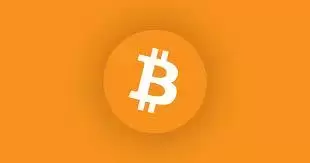 |
|
 |
|
 |
|
 |
|
 |
|
 |
|
 |
|
 |
|
 |
|
 |
|
 |
|
 |
|
 |
|
 |
|
 |
|
據聯準會稱,估計有 1,800 萬美國人投資了加密貨幣。美國剛剛選出了一位支持加密貨幣的總統。

An estimated 18 million Americans are invested in cryptocurrency, according to the Federal Reserve. And the United States just elected a pro-crypto president.
據聯準會稱,估計有 1,800 萬美國人投資了加密貨幣。美國剛剛選出了一位支持加密貨幣的總統。
Cryptocurrencies such as Bitcoin have become a trendy digital asset. Supporters claim that crypto subverts capitalism because it bypasses traditional bankers. Crypto can offer quick riches along with an air of high-tech sophistication.
比特幣等加密貨幣已成為一種流行的數位資產。支持者聲稱加密貨幣顛覆了資本主義,因為它繞過了傳統銀行家。加密貨幣可以帶來快速的財富以及高科技的複雜性。
Early adopters reaped enormous rewards, many becoming millionaires and billionaires.
早期採用者獲得了巨大的回報,許多人成為百萬富翁和億萬富翁。
Currently, there are about 100,000 crypto millionaires. Cryptocurrency wealth, furthermore, has built Fairshake, the largest crypto lobbying group in the U.S. During the recent election, it claims it helped elect 253 pro-crypto candidates.
目前,大約有 10 萬加密貨幣百萬富翁。此外,加密貨幣財富還建立了美國最大的加密貨幣遊說團體 Fairshake,在最近的選舉中,該組織聲稱幫助選舉了 253 名支持加密貨幣的候選人。
But is cryptocurrency a good ethical investment?
但加密貨幣是好的道德投資嗎?
As a business professor who studies technology and its consequences, I’ve identified three ethical harms associated with cryptocurrency that might give investors pause.
作為一名研究技術及其後果的商學院教授,我發現了與加密貨幣相關的三種道德危害,這些危害可能會讓投資者猶豫不決。
The three harms
三大危害
The first harm is excessive energy use, most notably by Bitcoin, the first decentralized cryptocurrency.
第一個危害是能源的過度使用,最明顯的是比特幣,第一個去中心化的加密貨幣。
Bitcoins are created, or “mined,” by tens of thousands of computers in massive data centers, contributing significantly to carbon emissions and environmental degradation. Bitcoin mining, which represents the lion’s share of crypto energy consumption, uses as much as 0.9% of global demand for electricity – similar to the annual energy needs of Australia.
比特幣是由大型資料中心的數萬台電腦創建或「開採」的,對碳排放和環境退化有重大貢獻。比特幣挖礦佔加密貨幣能源消耗的最大份額,佔全球電力需求的 0.9%,與澳洲的年度能源需求類似。
Second, unregulated and anonymous crypto is the payment system of choice for criminals behind fraud, tax evasion, human trafficking and ransomware – the latter costing victims an estimated $1 billion in extorted cryptocurrency payments.
其次,不受監管的匿名加密貨幣是欺詐、逃稅、人口販賣和勒索軟體背後的犯罪分子所選擇的支付系統——勒索軟體使受害者損失了估計 10 億美元的加密貨幣支付費用。
Until about a decade ago, these bad actors generally moved and laundered money through cash and shell companies. But around 2015, many transitioned to cryptocurrency, a much less troublesome form of handling dirty money anonymously.
直到大約十年前,這些不良行為者通常透過現金和空殼公司轉移和洗錢。但在 2015 年左右,許多人轉向了加密貨幣,這是一種不太麻煩的匿名處理髒錢的方式。
A bank cannot hold or transfer money anonymously. By law, a bank is passively complicit in money laundering if it isn’t enforcing know-your-customer measures to restrict bad actors, such as money launderers.
銀行不能匿名持有或轉移資金。根據法律規定,如果銀行不執行「了解你的客戶」措施來限制洗錢者等不良行為者,那麼銀行就被動地參與了洗錢活動。
In the case of a crypto coin, however, legal and ethical accountability cannot be transferred to a bank – there is no bank. So, who is complicit? Anyone in the crypto ecosystem may be viewed as ethically complicit in enabling illicit activities.
然而,就加密貨幣而言,法律和道德責任不能轉移給銀行——根本不存在銀行。那麼,誰是同謀呢?加密生態系統中的任何人都可能被視為在道德上參與非法活動。
I believe these first two harms are the most ethically troublesome. The first one harms the Earth and the second undermines global systems of trust – the interplay of institutions that underpin economic activity and social order.
我認為前兩種危害在道德上是最麻煩的。第一個危害地球,第二個破壞全球信任體系──支撐經濟活動和社會秩序的機構之間的互動。
Cryptocurrency’s third problem is its predatory culture.
加密貨幣的第三個問題是其掠奪性文化。
A predatory system, especially without regulatory oversight, takes advantage of small investors. And some cryptos have enriched their founders while taking advantage of investors’ lack of knowledge about the virtual currency.
掠奪性制度,尤其是在沒有監管的情況下,會利用小投資者。一些加密貨幣利用投資者對虛擬貨幣缺乏了解的優勢,讓其創辦人致富。
Some cryptocurrencies, especially the smaller coins and initial coin offerings, have characteristics of Ponzi schemes.
一些加密貨幣,特別是較小的硬幣和初始硬幣產品,具有龐氏騙局的特徵。
The now defunct Bitconnect, for example, promised large profits to investors who exchanged their Bitcoins for Bitconnect tokens. New investor money paid out “profits” to the first layer of investors with money from later investors.
例如,現已解散的 Bitconnect 承諾為用比特幣兌換 Bitconnect 代幣的投資者帶來巨額利潤。新投資者的資金用後來投資者的資金向第一層投資者支付「利潤」。
Ultimately, Satish Kumbhani, the Bitconnect founder, was indicted by a federal grand jury, and as of 2024 his whereabouts are unknown.
最終,Bitconnect 創始人 Satish Kumbhani 被聯邦大陪審團起訴,截至 2024 年,他的下落不明。
Pernicious myth
有害的神話
Besides cryptocurrency’s ethical harms, a pernicious myth surrounds the digital coin. It is the myth of inclusion, that cryptocurrency has the power to benefit society’s disadvantaged, especially the unbanked.
除了加密貨幣的道德危害之外,圍繞著數位貨幣還有一個有害的神話。這是包容性的神話,加密貨幣有能力造福社會弱勢群體,尤其是沒有銀行帳戶的人。
The global poor who don’t have bank accounts, and who could use cryptocurrency for international money transfers to family back home, do not necessarily benefit from crypto’s advantages. That’s because of the need to pay fees when converting and transferring, say, dollars to crypto and then from crypto to the local currency of the person receiving the money transfer.
沒有銀行帳戶的全球窮人,以及可以使用加密貨幣向家鄉家人進行國際匯款的人,並不一定能從加密貨幣的優勢中受益。這是因為在轉換和轉移時需要支付費用,例如將美元轉換為加密貨幣,然後從加密貨幣轉換為接收匯款人的當地貨幣。
In reality, the distribution of crypto assets is highly concentrated among the wealthy. A 2021 study found that just 0.01% of Bitcoin holders control 27% of its value.
事實上,加密資產的分佈高度集中在富人手中。 2021 年的一項研究發現,只有 0.01% 的比特幣持有者控制著 27% 的比特幣價值。
Democratizing finance is often framed as a movement to break the dominance of traditional financial institutions – private banks and government central banks. However, this narrative has not played out.
金融民主化通常被視為打破傳統金融機構(私人銀行和政府中央銀行)主導地位的運動。然而,這個故事並沒有上演。
Instead, a new elite has emerged: cryptocurrency’s creators, early backers and maintainers, who tweak the crypto’s software code and influence its future direction. This group holds disproportionate control, including over the crypto coin’s governance. All of this replicates the concentration of power that crypto was meant to dismantle.
相反,出現了一個新的精英:加密貨幣的創造者、早期支持者和維護者,他們調整加密貨幣的軟體程式碼並影響其未來的方向。該組織擁有不成比例的控制權,包括對加密貨幣的治理。所有這些都複製了加密貨幣旨在瓦解權力集中的情況。
A bit more ethical?
更有道德一點?
To be fair, the crypto community hasn’t ignored the criticism, including calls for more environmental awareness.
公平地說,加密貨幣社群並沒有忽視這些批評,包括呼籲提高環保意識。
In early 2021, members of the community founded the Crypto Climate Accord. The group enlisted some 250 crypto firms to reduce environmental harm.
2021 年初,社群成員創立了《加密貨幣氣候協議》。該組織招募了約 250 家加密貨幣公司來減少環境危害。
The following year, Ethereum, with its Ether coin, took the most significant step. It reduced its energy consumption by over 99% by migrating to a coin mining mechanism called “proof-of-stake,” which doesn’t require miners to
第二年,以太坊及其以太幣邁出了最重要的一步。透過遷移到一種稱為「權益證明」的硬幣挖掘機制,它減少了超過 99% 的能源消耗,該機制不需要礦工
免責聲明:info@kdj.com
所提供的資訊並非交易建議。 kDJ.com對任何基於本文提供的資訊進行的投資不承擔任何責任。加密貨幣波動性較大,建議您充分研究後謹慎投資!
如果您認為本網站使用的內容侵犯了您的版權,請立即聯絡我們(info@kdj.com),我們將及時刪除。
-

- 5現在購買的最佳加密貨幣,可以使您成為2025年的加密百萬富翁
- 2025-04-03 19:10:12
- 數字叢林是狂野的 - 但是在噪音中,五個傑出人物有加密鯨魚在談論,日常投資者密切關注。
-

-

- SMBC和Circle聯手探索金融市場中的Stablecoin用例
- 2025-04-03 19:05:12
- 該計劃將著重於開發發行和循環這些數字資產的框架,並分析監管方面的考慮和潛在的現實應用程序。
-

-

- 民主黨人在馬拉松國會聽證會上襲擊了特朗普的加密貨幣
- 2025-04-03 19:00:15
- 他們說,共和黨人在眾議院的穩定法案將是總統的大規模贈品
-

-

- 比特幣真的可以達到每枚硬幣100萬美元嗎?
- 2025-04-03 18:55:13
- 長期以來,比特幣一直是金融界的終極過山車。從2009年作為利基數字實驗的卑微開始到今天的數量千萬美元資產類別的地位
-

- 民主黨立法者按SEC調查特朗普總統與世界自由財務的聯繫
- 2025-04-03 18:55:13
- 民主黨立法者正在向美國證券交易委員會(SEC)施加有關唐納德·特朗普總統與加密貨幣公司世界自由的聯繫的詳細信息
-




























































